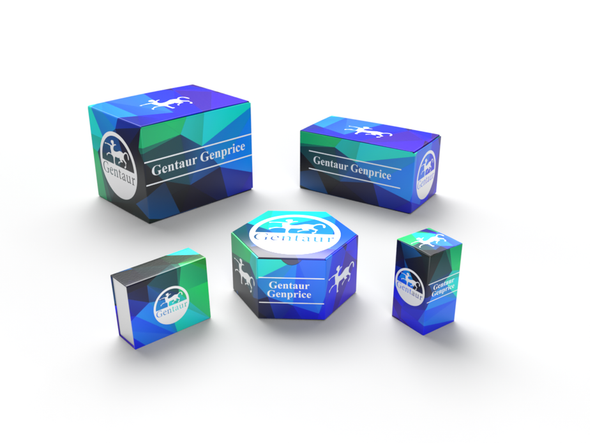Description
Androgen Receptor Antibody | 16-488 | Gentaur UK, US & Europe Distribution
Host: Rabbit
Reactivity: Human, Mouse, Rat
Homology: N/A
Immunogen: A synthetic peptide corresponding to a sequence within amino acids 1-100 of human Androgen Receptor (NP_000035.2) .
Research Area: Cancer, Cell Cycle, Signal Transduction, Transcription
Tested Application: WB, IHC
Application: WB: 1:500 - 1:2000
IHC: 1:50 - 1:200
Specificiy: N/A
Positive Control 1: N/A
Positive Control 2: N/A
Positive Control 3: N/A
Positive Control 4: N/A
Positive Control 5: N/A
Positive Control 6: N/A
Molecular Weight: Observed: 110kDa
Validation: N/A
Isoform: N/A
Purification: Affinity purification
Clonality: Polyclonal
Clone: N/A
Isotype: IgG
Conjugate: Unconjugated
Physical State: Liquid
Buffer: PBS with 0.02% sodium azide, 50% glycerol, pH7.3.
Concentration: N/A
Storage Condition: Store at -20˚C. Avoid freeze / thaw cycles.
Alternate Name: Androgen receptor, Dihydrotestosterone receptor, Nuclear receptor subfamily 3 group C member 4, AR, DHTR, NR3C4
User Note: Optimal dilutions for each application to be determined by the researcher.
BACKGROUND: The androgen receptor gene is more than 90 kb long and codes for a protein that has 3 major functional domains: the N-terminal domain, DNA-binding domain, and androgen-binding domain. The protein functions as a steroid-hormone activated transcription factor. Upon binding the hormone ligand, the receptor dissociates from accessory proteins, translocates into the nucleus, dimerizes, and then stimulates transcription of androgen responsive genes. This gene contains 2 polymorphic trinucleotide repeat segments that encode polyglutamine and polyglycine tracts in the N-terminal transactivation domain of its protein. Expansion of the polyglutamine tract from the normal 9-34 repeats to the pathogenic 38-62 repeats causes spinal bulbar muscular atrophy (Kennedy disease) . Mutations in this gene are also associated with complete androgen insensitivity (CAIS) . Two alternatively spliced variants encoding distinct isoforms have been described.






